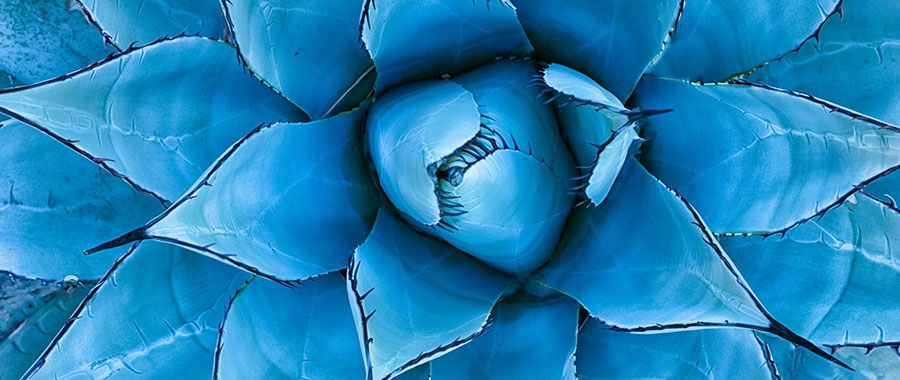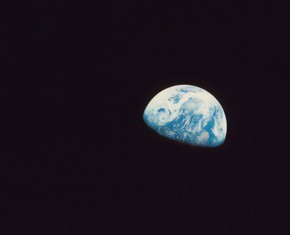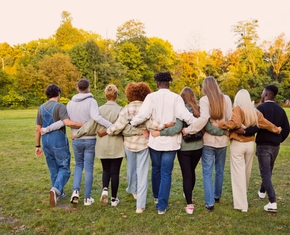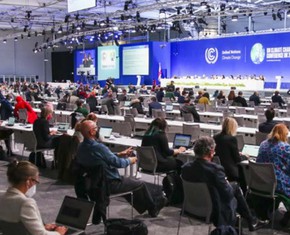The views expressed in our content reflect individual perspectives and do not represent the authoritative views of the Baha'i Faith.
If God created the universe, and by extension our little planet Earth, is it our job to take care of His creation?
Most religions answer a resounding yes to that question. In the Bible, the Psalms express it this way: “The earth is the Lord’s, and everything in it, the world, and all who live in it.” – Psalms 24. In the Qur’an, Muhammad put it in these terms: “Beholdest thou not that Allah sendeth down water from the heaven, and then We thereby bring fruit of diverse colours?” – Quran 35:27. The Buddhist Dalai Lama says it like this:
The world grows smaller and smaller, more and more interdependent … today more than ever before life must be characterised by a sense of Universal Responsibility, not only nation to nation and human to human, but also human to other forms of life.
The Baha’i writings, too, praise and honor our one Creator for giving us life and the means to sustain it:
All praise to the unity of God, and all honor to Him, the sovereign Lord, the incomparable and all-glorious Ruler of the universe, Who, out of utter nothingness, hath created the reality of all things, Who, from naught, hath brought into being the most refined and subtle elements of His creation, and Who, rescuing His creatures from the abasement of remoteness and the perils of ultimate extinction, hath received them into His kingdom of incorruptible glory. Nothing short of His all-encompassing grace, His all-pervading mercy, could have possibly achieved it. How could it, otherwise, have been possible for sheer nothingness to have acquired by itself the worthiness and capacity to emerge from its state of non-existence into the realm of being? – Baha’u’llah, Gleanings from the Writings of Baha’u’llah, pp. 64-65.
We are stewards, the holy writings of all Faiths tell us, of this Earth. Created for us by God, it is ours to nurture and sustain—but because of our inevitable mortality, not ours to keep. We cannot own the Earth. We have a spiritual responsibility to act as the Earth’s caretakers and stewards, not only for our benefit and sustenance but for the continuing bounty it can provide for our progeny. As the original tribal dwellers of the Earth realized, we can never truly possess the land, the sea, the sky and the flowing waters—we can only thank the Creator for their bounty and take care of them for their next occupants:
One does not sell the earth upon which the people walk. – Oglala Lakota Sioux chief Crazy Horse.
Humankind has not woven the web of life. We are but one thread within it. Whatever we do to the web, we do to ourselves. All things are bound together. All things connect. – Duwamish Chief Seattle.
The time will soon be here when my grandchild will long for the cry of a loon, the flash of a salmon, the whisper of spruce needles, or the screech of an eagle. But he will not make friends with any of these creatures and when his heart aches with longing, he will curse me. Have I done all to keep the air fresh? Have I cared enough about the water? Have I left the eagle to soar in freedom? Have I done everything I could to earn my grandchild’s fondness? – Tsleil-Waituth Chief Dan George.
Our land is more valuable than your money. It will last forever. It will not even perish by the flames of fire. As long as the sun shines and the waters flow, this land will be here to give life to men and animals. – Siksika Chief Crowfoot.
The difference between the colonists and conquerors of those lands and their original inhabitants was the difference between ownership and stewardship. So what distinguishes a steward from an owner? Time for some dictionary definitions:
stewˑard: n. [Old Engish stig, hall + weard, keeper] 1. a person put in charge of a large estate, an administrator.
ownˑer: n. [Old English agan, possess] 1. one who owns or possesses.
From a Baha’i perspective, as well, we are not owners but stewards of this planet. The Earth belongs to us all, but in the end our bodies only occupy a very small part of it:
Land belongs not to one people, but to all people. This earth is not man’s home, but his tomb … However great the conqueror, however many countries he may reduce to slavery, he is unable to retain any part of these devastated lands but one tiny portion—his tomb! – Abdu’l-Baha, Paris Talks, p. 28.
That’s why the Baha’i teachings say that it is our responsibility as global citizens to preserve the Earth for future generations, seek the good of all and “restore this withered land to sweet new life:”
Happy the soul that shall forget his own good, and like the chosen ones of God, vie with his fellows in service to the good of all; until, strengthened by the blessings and perpetual confirmations of God, he shall be empowered to raise this mighty nation up to its ancient pinnacles of glory, and restore this withered land to sweet new life, and as a spiritual springtime, array those trees which are the lives of men with the fresh leaves, the blossoms and fruits of consecrated joy. – Abdu’l-Baha, The Secret of Divine Civilization, p. 115.
















Comments
Sign in or create an account
Continue with Googleor